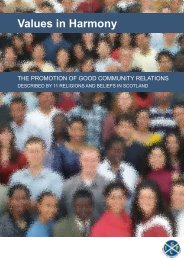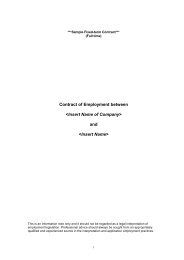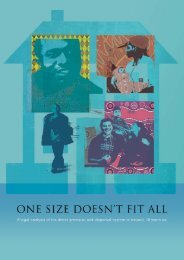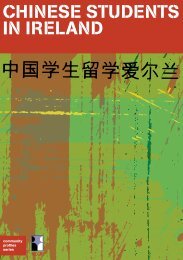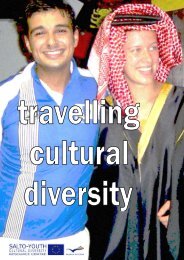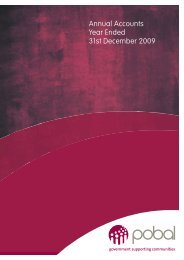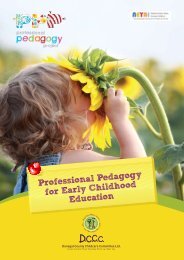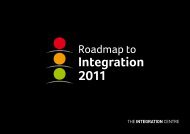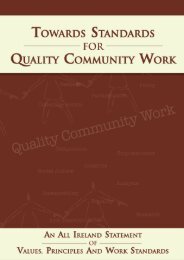Intercultural Education in the Post-Primary School - National Council ...
Intercultural Education in the Post-Primary School - National Council ...
Intercultural Education in the Post-Primary School - National Council ...
Create successful ePaper yourself
Turn your PDF publications into a flip-book with our unique Google optimized e-Paper software.
6APPROACHES AND METHODOLOGIES<strong>Education</strong> shall be directed to <strong>the</strong> full development of <strong>the</strong> humanpersonality and to <strong>the</strong> streng<strong>the</strong>n<strong>in</strong>g of respect for human rights andfundamental freedoms. It shall promote understand<strong>in</strong>g, tolerance andfriendship among all nations, racial or religious groups, and shall fur<strong>the</strong>r<strong>the</strong> activities of <strong>the</strong> United Nations for <strong>the</strong> ma<strong>in</strong>tenance of peace…(Universal Declaration of Human Rights, Article 26.)As <strong>the</strong> characteristics of <strong>in</strong>terculturaleducation outl<strong>in</strong>ed <strong>in</strong> chapter two makeclear, <strong>the</strong> approaches and methodologiesthat are particularly suitable for an<strong>in</strong>tercultural approach are those that useactive learn<strong>in</strong>g strategies, <strong>in</strong> particular <strong>the</strong>use of discussion. This chapter, and <strong>the</strong>subsequent exemplars, identify how activelearn<strong>in</strong>g methodologies can be appliedacross a range of subject areas <strong>in</strong> <strong>the</strong> postprimaryclassroom.ACTIVE LEARNINGThe real voyage <strong>in</strong> discovery consistsnot <strong>in</strong> seek<strong>in</strong>g new landscapes but <strong>in</strong>hav<strong>in</strong>g new eyes.(Marcel Proust)Today, active learn<strong>in</strong>g approaches arefirmly rooted <strong>in</strong> post-primary teach<strong>in</strong>g andare central to <strong>the</strong> successful delivery of amost subjects. Active learn<strong>in</strong>g is a process<strong>in</strong> which students actively participate <strong>in</strong><strong>the</strong>ir learn<strong>in</strong>g <strong>in</strong> a variety of ways. This<strong>in</strong>creases <strong>the</strong> possibility that students will<strong>in</strong>ternalise what <strong>the</strong>y have learned and beable to apply it to <strong>the</strong>ir day-to-day livesand to everyday situations. This makesactive learn<strong>in</strong>g crucial to <strong>the</strong> developmentof responsible global citizenship.Active learn<strong>in</strong>g• engages students physically, cognitivelyand emotionally• places students at <strong>the</strong> centre of <strong>the</strong>learn<strong>in</strong>g process through ensur<strong>in</strong>g that<strong>the</strong> content is relevant to <strong>the</strong>ir own livesand is engag<strong>in</strong>g for <strong>the</strong>m• promotes responsibility, confidence andself-esteem as students becomeresponsible for <strong>the</strong>ir own learn<strong>in</strong>g• acknowledges that students learn fromeach o<strong>the</strong>r and teachers learn fromstudents, as well as vice versa80<strong>Intercultural</strong> <strong>Education</strong> <strong>in</strong> <strong>the</strong> <strong>Post</strong> <strong>Primary</strong> <strong>School</strong>




